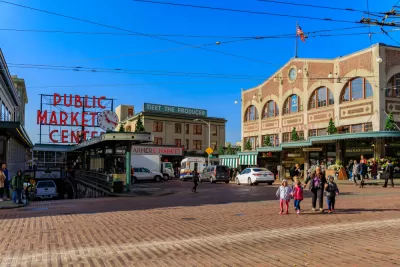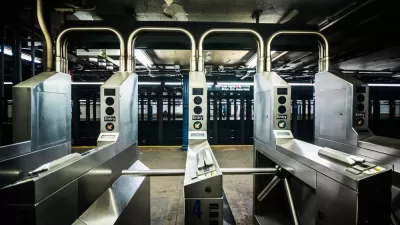Project for Public Spaces' Market Cities Initiative seeks to understand and addresses challenges faced by the public marketplaces to improve market infrastructure and promote healthy food systems in local communities.

In a partnership with Healthbridge and Slow Food, Project for Public Spaces (PPS) kicked off the Market Cities Initiative with citywide strategies in three major metropolitan areas, working remotely with stakeholders in Pittsburgh, Seattle, and Toronto to better understand the importance of sustainable public marketplaces and to support communities by way of developing localized market networks.
The PPS strategy seeks to address the many threats faced by public markets and the economies that house them. "These constant and immediate threats include increasing urban development and value of real estate; the modernization and centralization of food systems; economic development practices that neglect women, minority populations, and other small entrepreneurs; and the lack of management capacity of the markets themselves," say PPS officials.
PPS worked in February to gather data about challenges faced by public markets through a Market Cities Survey that collected initial responses from more than 60 cities worldwide. Survey participants reported a lack of communication between market managers in their area. The next step in the strategy: Inventory and map market networks and conduct online forums to connect market operators and city officials.
Given the uncertainty of U.S. markets' ability to operate in the near future, PPS will keep watch over government, police, and investor responses as they continue to move forward with the project.
FULL STORY: KICKSTARTING MARKET CITY STRATEGIES IN PITTSBURGH, SEATTLE & TORONTO

Alabama: Trump Terminates Settlements for Black Communities Harmed By Raw Sewage
Trump deemed the landmark civil rights agreement “illegal DEI and environmental justice policy.”

Planetizen Federal Action Tracker
A weekly monitor of how Trump’s orders and actions are impacting planners and planning in America.

The 120 Year Old Tiny Home Villages That Sheltered San Francisco’s Earthquake Refugees
More than a century ago, San Francisco mobilized to house thousands of residents displaced by the 1906 earthquake. Could their strategy offer a model for the present?

BLM To Rescind Public Lands Rule
The change will downgrade conservation, once again putting federal land at risk for mining and other extractive uses.

Indy Neighborhood Group Builds Temporary Multi-Use Path
Community members, aided in part by funding from the city, repurposed a vehicle lane to create a protected bike and pedestrian path for the summer season.

Congestion Pricing Drops Holland Tunnel Delays by 65 Percent
New York City’s contentious tolling program has yielded improved traffic and roughly $100 million in revenue for the MTA.
Urban Design for Planners 1: Software Tools
This six-course series explores essential urban design concepts using open source software and equips planners with the tools they need to participate fully in the urban design process.
Planning for Universal Design
Learn the tools for implementing Universal Design in planning regulations.
Clanton & Associates, Inc.
Jessamine County Fiscal Court
Institute for Housing and Urban Development Studies (IHS)
City of Grandview
Harvard GSD Executive Education
Toledo-Lucas County Plan Commissions
Salt Lake City
NYU Wagner Graduate School of Public Service




























